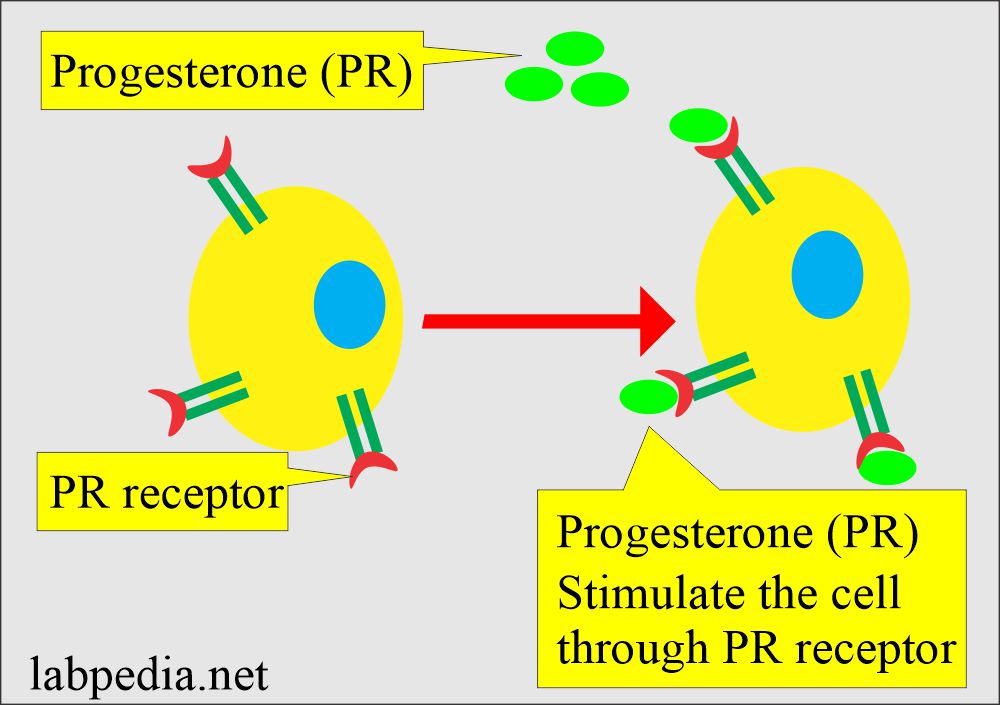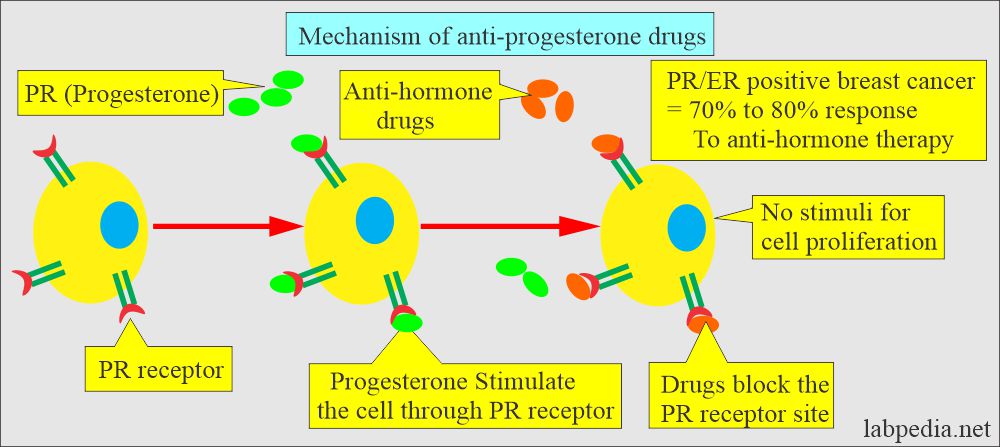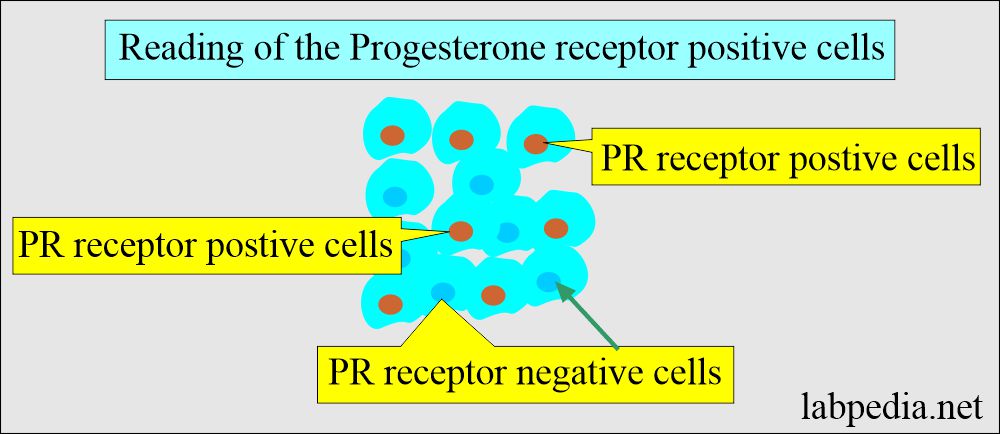Progesterone Receptor (PR) For Breast Cancer
Progesterone Receptor (PR)
What sample is needed for Progesterone Receptor (PR)?
- The paraffin blocks of the breast cancer tissue are needed for the cytochemical method.
- There are immunocytochemical and immunochemical methods.
What are the Indications for Progesterone Receptor (PR)?
- PR is done to see the sensitivity to anti-hormone therapy in the case of breast cancers.
- PR gives the prognosis of breast cancer.
What are the functions of progesterone Receptor?
- Progesterone receptor is a specific cellular protein with high affinity and specificity for progesterone hormone.
- The progesterone receptor protein is found in the target tissue, such as the breast, uterus, pituitary gland, and hypothalamus.
- Progesterone stimulates the cells through the progesterone receptor.
- A reduction in the blood progesterone level reduces the biochemical activity of this cell.
What is the basis of antihormone therapy in breast cancer?
- This is the basis for the treatment of breast cancer by antihormone therapy,
- PR-positive breast cancer is more responsive than PR-negative cases.
- Postmenopausal women’s breast cancers are more PR-positive than young women.
- The mechanism of anti-hormone therapy is that the drug blocks the site of progesterone hormone, and there is no signal for cell proliferation.
How will you interpret the immunocytochemistry of breast biopsy?
- PR receptor stain in the nucleus (the color is brown).
- Negative = < 5 % of the cells are positive for the PR receptors.
- Positive = > 5 % of the cells stain for the PR receptors.
What is the clinical evaluation for PR receptor-positive breast cancer?
- Carcinoma of the breast shows 60% positivity.
- Approximately 2/3 of the cases show a response to hormone therapy.
- PR negative cases, 90% do not respond to hormone therapy.
What is the response to anti-hormone therapy?
| ER | PR | Response to hormone therapy |
|---|---|---|
| Positive | Positive | 75 % |
| Negative | Positive | 60 % |
| Positive | Negative | 35 % |
| Negative | Negative | 25 % |
Questions and answers:
Question 1: How many PR-positive cells will label positive breast cancer?
Question 2: What is the response of breast cancer in PR-receptor positive cells?




It is a pleasure worth reading this article as it provides us information on practicing compassionate medicine.It is one of the best options to read from here in detail. I would go for this site even in future when needed. Great blog indeed, will visit again future to read more!!
Thanks for the comments.